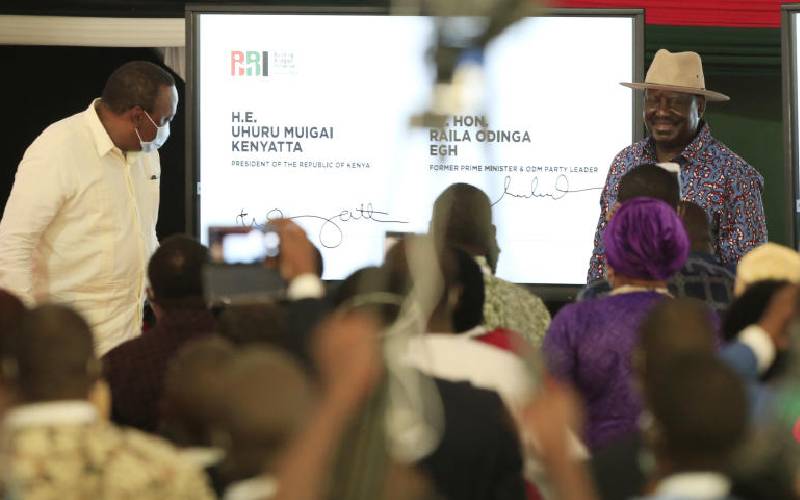
President Uhuru Kenyatta and ODM leader Raila Odinga look at their signatures during the launch of the collection of signatures for the Building Bridges Initiative (BBI) at KICC in Nairobi on November 25, 2020. [Stafford Ondego, Standard]
What is it in the Bridging Bridges Initiative (BBI) that is refusing to die? The High Court announced BBI was a dead horse. The Court of Appeal conducted an intensive examination and concurred with the High Court that the initiative was an offshoot of an illegality. Now the Supreme Court is interrogating the document to judge if there is any life left in it.